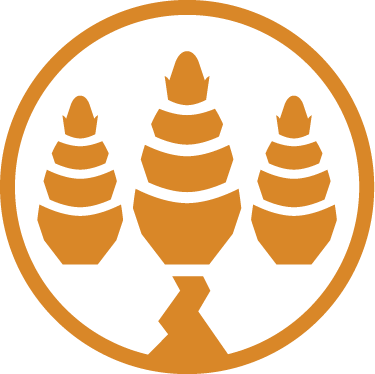Post-UPR46 Khmer Advocacy Efforts Session
Five things you need to know about the upcoming Khmer advocacy activities post-Universal Periodic Review on Cambodia that took place on 8 May in Geneva of this year.
For the past two years, the United Nations greatly assisted Khmer advocacy work through a variety of activities, statements and forums focused on Cambodia. They have led the way by:
a. Issuing findings related to the lead-up to the 2023 national elections, concluding that the elections could not be considered free, fair or legitimate because of the long-standing and extensive nature of the Hun Manet/Hun Sen human rights, democracy and rule of law abuses, including the elimination of the opposition political parties, the closing down of independent media outlets, and the criminal prosecution through “Mass Criminal Trials” of critics of the government.
b. Developing and issuing a United Nations “Action Plan of Reform Measures,” spelling out the detailed steps that had to be taken by the Hun Sen/Hun Manet government before the political process to be considered free and fair.
c. Conducting the May 8, 2024 Universal Periodic Review session of Cambodia’s extensive human rights abuses.
Using Amnesty International as a model, the Khmer Community developed and put in place a number of new and highly creative advocacy tools that took advantage of, and built upon, the United Nations’ advocacy opportunities and forums. These included:
a. An Urgent Action Alert System bringing attention and mobilizing community action in support of major situations of abuse;
b. A series of issue oriented “Khmercasts,” – virtual forums bringing attention to key issues, like the long-overlooked problem of land grabs and illegal evictions, using the latest virtual methods and technologies to help generate interest and involvement.
The Khmer Community’s advocacy efforts must not and should not end with the conclusion of the United Nations’ May 8 Universal Periodic Review for Cambodia. We have a great deal of work that remains to be done, especially given the sad reality that Hun Manet has chosen to continue, and even to increase, the level of human rights abuses carried out by his father Hun Sen. We must move forward with new and creative advocacy efforts.
Prime opportunities for new advocacy opportunities have recently been presented to us by several important new developments of major significance and potential impact, including:
a. Amnesty International’s November 2023 report, “No One Wants to Leave Their Home,” that provides alarming and thorough documentation of what Amnesty calls “mass illegal evictions” by the Cambodian government of over 10,000 families of long-standing residents from the 113 “traditional villages” in the Angkor Wat Heritage Site region, in direct violation of protections included in the government’s Heritage Site Agreement with UNESCO.
b. Establishment of a major naval base by China in Cambodia, in direct violation of provisions of the Cambodian Constitution and the Paris Peace Accords.
c. Hun Manet doubling down on his father Hun Sen’s widespread human rights and democracy abuses, including the UN voicing strong criticism of the Cambodian Supreme Court for allowing the jailing of those criticizing the government.
The mistaken “false hope” proposal to “legitimize” what the UN criticized as the questionable “hereditary appointment” of Hun Manet to succeed his father as Prime Minister, in return for promised reforms which never materialize – a repeat of past policies of accommodation with Hun Sen that did not work effectively.
So where does the Khmer Community go from here? How do we best strategically build our “next steps” for our advocacy work that builds effectively on the past two years efforts of both the United Nations and the Khmer Community working in closer cooperation together? We have been given important signals about how to move forward effectively from Amnesty International’s new report on land evictions, and the information coming in on the illegal development of Chinese military bases in Cambodia. What are your views, taking into account as a foundation the past two years of effective advocacy work by both the UN and the Khmer Community?
You are the most critical component and participant in these advocacy efforts. It is your active involvement and support that demonstrates the strength and importance of our advocacy work, and the reason why the international community and the government of Cambodia must pay attention to the concerns and complaints that we are raising. Join with us in “speaking truth to power” in a forceful and effective way, and in promoting meaningful human rights progress for Cambodia!
———————————
New Announcement
When we put together this post-UPR material, we were not aware of a major development and advocacy opportunity regarding the issue of evictions, namely the Angkor Wat mass evictions. Amnesty International informed us that there will be a special World Heritage Committee meeting taking place next month on July 21-31, in New Delhi, India, addressing the Angkor Wat evictions. As Amnesty International has fully documented, UNESCO has failed to carry out its responsibility to monitor compliance by the government of Cambodia with the World Heritage Agreement provision guaranteeing long-term residents of the traditional villages in Angkor Wat would not be evicted under any circumstances. Therefore, the Khmer community, on behalf of the evictees, will now be issuing two complaints on this problem. 1) The already planned hand-delivery of the major complaint to UNESCO at the Paris Headquarters, and 2) We are now obligated to submit a separate, additional complaint to the World Heritage Committee at their July 21-31 meeting focusing on UNESCO’s failure to enforce the Agreement.
Over the next several weeks, we will work closely with Amnesty, UNESCO, and the World Heritage Committee, as well as the members of the Angkor Wat community who have been evicted, to stop these evictions and bring these violations to the attention of the international community.
